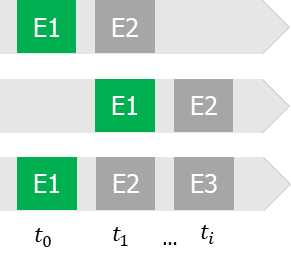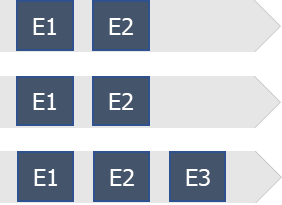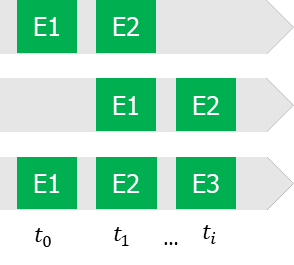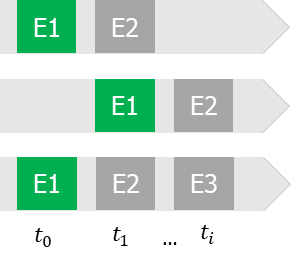Business process simulation is a well-known approach to estimate the impact of changes to a process with respect to time and cost measures -- a practice known as what-if process analysis. The usefulness of such estimations hinges on the accuracy of the underlying simulation model. Data-Driven Simulation (DDS) methods combine automated process discovery and enhancement techniques to learn process simulation models from event logs. Empirical studies have shown that, while DDS models adequately capture the observed sequences of activities and their frequencies, they fail to capture the temporal dynamics of real-life processes. In contrast, parallel work has shown that generative Deep Learning (DL) models are able to accurately capture such temporal dynamics. The drawback of these latter models is that users cannot alter them for what-if analysis due to their black-box nature. This paper presents a hybrid approach to learn process simulation models from event logs wherein a (stochastic) process model is extracted from a log using automated process discovery and enhancement techniques, and this model is then combined with a DL model to generate timestamped event sequences (traces). An experimental evaluation shows that the resulting hybrid simulation models match the temporal accuracy of pure DL models, while retaining the what-if analysis capability of DDS approaches.
翻译:模拟业务过程是一种众所周知的方法,用以估计时间和成本计量过程变化的影响 -- -- 一种被称为 " 如果进程分析 " 的做法。这种估计的有用性取决于基本模拟模型的准确性。数据驱动模拟(DDS)方法结合了自动过程发现和增强技术,以便从事件日志中学习过程模拟模型。经验性研究表明,虽然DDS模型充分捕捉了所观测的活动序列及其频率,但它们未能捕捉实际生活过程的时间动态。相比之下,平行工作表明基因化深学习(DL)模型能够准确地捕捉这种时间动态。后一种模型的缺点是,用户无法改变这些模型,因为其黑盒性质而进行什么分析。本文介绍了一种混合方法,从事件日志中学习过程模拟模型,其中利用自动过程发现和强化技术从日志中提取一个(Stochacistic)进程模型,然后与DL模型相结合,以生成经过时间检查的事件序列(跟踪)。实验性评估显示,由此产生的混合深度模拟模型同时匹配了时间性DL分析能力。








